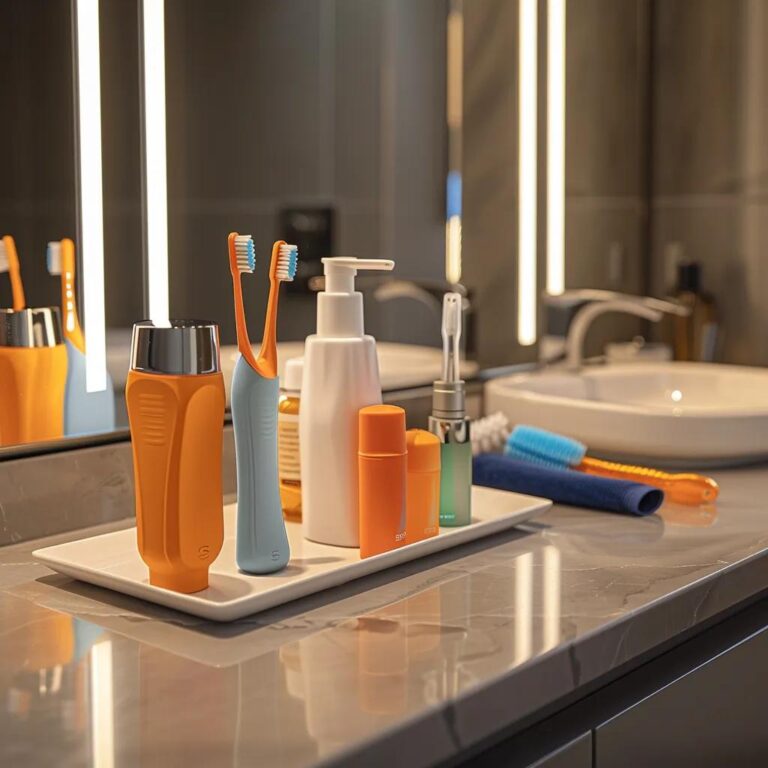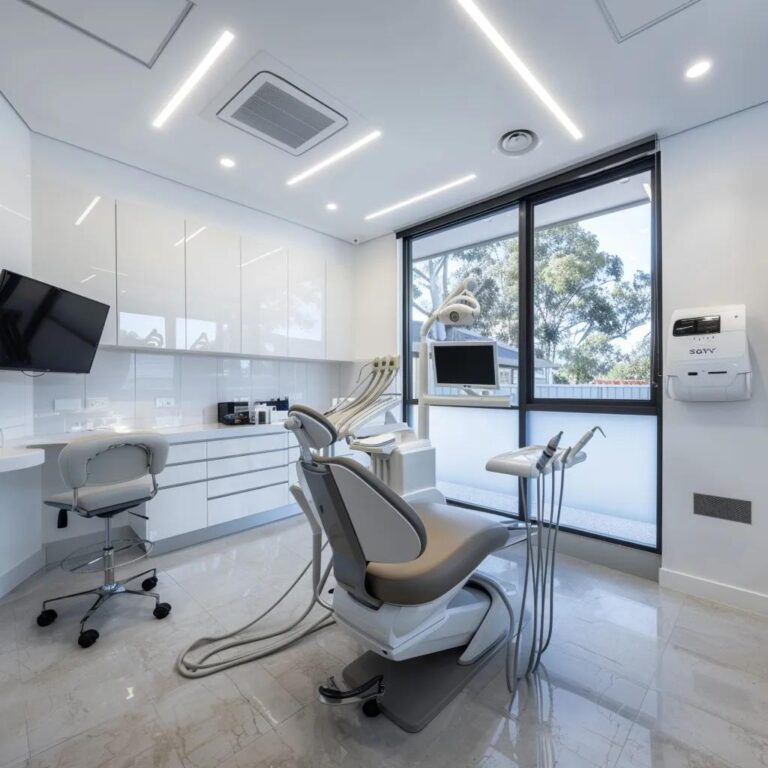

Emergency Dental Care in Sandgate: What to Expect
When dental emergencies arise, prompt and professional care is essential to protect your oral health and wellbeing. This guide is designed to help patients in Sandgate understand situations that require immediate dental attention, how to access emergency services, what treatments may be available, and what to expect from your dental care appointment. The focus remains on providing timely relief and quality treatment while ensuring long-term dental stability.
Recognising Dental Situations Requiring Urgent Care in Sandgate
Recognising when dental issues require urgent care is vital to prevent complications, pain, and long-term damage. In Sandgate, emergencies range from severe toothaches to traumatic injuries. Early detection allows for faster treatment and reduces the risk of worsening conditions.
Symptoms That Signal a Need for Emergency Dental Care Sandgate
Key signs that demand immediate attention include persistent, severe toothache, rapid swelling of the gums or face, and uncontrollable bleeding. These symptoms may signal an infection or injury that can quickly become serious—for instance, a toothabscess can lead to systemic health issues. Additionally, pain that worsens over time, especially when combined with fever or difficulty swallowing, clearly indicates the need for emergencydental care.
Distinguishing Between Urgent and Non-Urgent Dental Issues
It is important to separate emergencies from routine dental concerns. Urgent issues usually include signs of infection, severe trauma like a knocked-out tooth, or extreme pain that disrupts daily activities. In contrast, minor sensitivity or small chips without pain do not require immediate treatment. In Sandgate, any sudden symptoms coupled with swelling or fever should prompt urgent evaluation.
When to Seek Immediate Emergency Dental Care in Sandgate
Immediate care is essential when pain is unbearable, there is visible swelling, or bleeding is excessive. If a tooth is knocked out or cracked in an accident, prompt intervention significantly increases the chances of saving it and preventing infection spread.
Common Dental Emergencies Handled by Sandgate Dentists
Sandgate dentists routinely manage emergencies such as severe toothaches from decay or infection, broken or knocked-out teeth due to trauma, lost fillings or crowns, and abscesses causing significant pain and swelling. Treatments range from pain management and antibiotics to more complex procedures like restorative treatments or extractions. The aim is rapid diagnosis and effective treatment for lasting oral health.
Finding and Contacting Emergency Dental Services in Sandgate
In a dentalemergency, knowing how to quickly locate and contact a dental service is critical. Sandgate has several practices with expertise in urgent oral care, which can help reduce complications and speed up recovery.
Locating an Emergency Dentist in Sandgate Quickly
Patients should start by calling a trusted local dental practice or using online resources to find emergency services. Many clinics provide 24-hour contact numbers and clear instructions on accessing care quickly. Searching for “emergency dentist sandgate” or “urgent dental care near me” usually returns helpful results. Local referral networks and health websites can also offer recommendations based on proximity and reviews.
What to Ask When Calling for Emergency Dental Care Sandgate
When contacting a clinic, asking direct questions is vital. Confirm that the clinic is accepting emergency cases, ask for an estimated appointment time, inquire about available treatments, and discuss payment options and insurance coverage.
Out-of-Hours Emergency Dental Care Options in Sandgate
For emergencies outside regular hours, many practices in Sandgate offer after-hours or on-call services. Having these contact details at hand ensures that you can receive necessary treatment during evenings or weekends, providing prompt pain relief and initial care until further treatment can be arranged.
Preparing for Your Journey to the Sandgate Emergency Dentist
Before going to the clinic, prepare a summary of your symptoms, bring previous dental records, and list any medications you take. Remember to carry identification and insurance information. Being prepared helps streamline check-in and allows the dental team to act promptly.
Your Emergency Dental Appointment Process in Sandgate
Understanding the appointment process can reduce anxiety and ensure preparedness. The process is designed for both rapid relief and long-term treatment planning.
Initial Assessment and Pain Relief Measures
Upon arrival, the dental team performs a quick assessment to determine the source of pain or injury. Immediate measures may include local anaesthesia, analgesics, and antibiotics if an infection is present. This initial evaluation is crucial to decide on the correct intervention and provide immediate relief.
Diagnostic Procedures at Your Sandgate Emergency Dental Visit
Following the initial assessment, procedures like X-rays or intraoral examinations are conducted to evaluate the full extent of the dentalemergency. These diagnostics help identify issues such as fractures, deep decay, or infections and are essential for developing a precise treatment plan that is both effective and minimally invasive.
Understanding Your Treatment Plan and Options
Once tests are complete, your dentist will explain available treatment options, from simple procedures like filling replacements to more extensive interventions such as root canals or extractions. Clear explanation of the treatment plan ensures that patient expectations are aligned, and decisions can be made about any necessary follow-up care.
What to Bring to Your Emergency Dental Care Appointment in Sandgate
Bring all important documents, including dental records, identification, and insurance details. A list of medications and notes on your medical history, along with any information related to the incident if it involved trauma, will help the dentist provide accurate care. This preparation also facilitates smoother administrative processes at the clinic.
Typical Treatments Offered During Emergency Dental Care in Sandgate
Emergencydental treatments in Sandgate focus on relieving pain, controlling infection, restoring function and appearance, and, when possible, saving the natural tooth. Common interventions include the following:
Addressing Severe Toothache and Infections
Severe toothaches caused by decay or infection are treated by draining abscesses, prescribing antibiotics, and providing immediate pain relief. In some cases, root canal therapy is necessary to remove infected pulp tissue and restore tooth health, thereby preventing systemic complications.
Repairing Chipped, Broken, or Knocked-Out Teeth in Sandgate
Traumatic injuries resulting in chipped, broken, or knocked-out teeth require quick intervention. Dentists may re-implant a knocked-out tooth if treatment is provided within a critical time window. For broken or chipped teeth, options include dental bonding, crowns, or veneers to restore function and appearance.
Managing Lost Fillings or Crowns With Emergency Dental Care Sandgate
Lost fillings or crowns can cause discomfort and sensitivity. Emergency care involves temporary repairs to protect the tooth until a permanent restoration is feasible. Temporary crowns or adhesives might be applied, with a follow-up appointment scheduled to finalize the repair.
Dealing With Abscesses and Swelling
Dental abscesses, resulting from untreated cavities or periodontal disease, cause severe pain, swelling, and sometimes fever. Treatment involves draining the abscess, using antibiotics, and managing pain. Timely intervention is critical to avoid serious complications.
Extractions as Part of Emergency Dental Care in Sandgate
When a tooth is severely decayed, damaged, or infected beyond repair, extraction may be necessary. Emergency extractions are performed under appropriate anaesthesia to ensure patient comfort. Post-extraction, patients receive instructions on pain management and care to prevent further infection and discuss replacement options if needed.
Understanding Costs and Payment for Emergency Dental Care Sandgate
The financial aspect of emergencydental care is an important consideration. In Sandgate, understanding fee structures, insurance coverage, and payment options can alleviate stress during urgent situations.
Typical Fee Structures for Emergency Dental Services in Sandgate
Emergency services generally involve a consultation fee plus additional charges for procedures such as extractions, fillings, or root canals. The fees vary depending on the complexity of the case and materials used. Many practices provide transparent pricing or estimates during the initial consultation.
Insurance Coverage for Emergency Dental Care Sandgate
Most dental insurance plans cover a portion of emergency treatments, though coverage levels vary. Patients should confirm with their provider what is included in their plan. Dentists in Sandgate are experienced in working with various insurers to help determine any out-of-pocket costs.
Payment Options Available at Sandgate Emergency Dental Clinics
Many clinics offer flexible payment options, including payment plans, and acceptance of cash, debit, or credit cards. These arrangements help manage unexpected expenses without delaying necessary treatment.
Aftercare and Follow-Up for Your Sandgate Emergency Dental Treatment
Proper aftercare is crucial for a full recovery and the long-term success of emergencydental treatments. Following your procedure carefully helps prevent complications and maintains oral health.
Post-Treatment Instructions and Pain Management
Following any emergencydental treatment, it is essential to adhere strictly to the post-treatment instructions. This may include taking medications as prescribed, using cold compresses to reduce swelling, and following guidelines on oral hygiene. Avoiding certain foods and behaviors that could disrupt healing is also important.
Scheduling Follow-Up Appointments if Needed
Dentists in Sandgate typically schedule a follow-up visit to reassess the treatment area, remove any temporary restorations, and implement long-term preventive measures. Regular follow-ups enable early detection of complications and ensure that recovery proceeds as expected.
Preventing Future Dental Emergencies
Preventive care, including regular check-ups and maintaining excellent oral hygiene, is key to minimising the risk of future dental emergencies. Wearing protective gear during sports and adopting a balanced diet further contribute to long-term dental health.
When to Contact Your Sandgate Dentist After an Emergency
Even after treatment, remain alert for signs of renewed pain, swelling, unusual bleeding, or infection. Contact your dentist immediately if any of these symptoms occur. Prompt communication can often prevent minor issues from escalating into serious complications.
Table: Emergency Dental Care Services Overview in Sandgate
Before diving into additional details, the table below summarises the key services provided during emergencydental care in Sandgate along with their benefits:
| Service | Key Feature | Benefit | Common Procedure Example |
|---|---|---|---|
| Severe Toothache Management | Pain relief and infection control | Immediate relief and prevention of spread | Root canal treatment, antibiotic prescription |
| Dental Trauma Repair | Restoration of broken teeth | Preservation of natural teeth and aesthetics | Re-implantation of knocked-out tooth, bonding |
| Lost Restoration Repair | Temporary and permanent remedy | Protection and improved function | Replacement of lost filling or crown |
| Abscess and Infection Management | Drainage and medication administration | Reduction of swelling and pain | Incision and drainage, antibiotics |
| Tooth Extraction | Removal of irreparable teeth | Elimination of infection source | Simple or surgical extraction |
This table provides a quick overview of the services available during an emergencydental visit, highlighting both immediate and long-term benefits to your dental health.
Frequently Asked Questions
Q: What constitutes a dental emergency in Sandgate? A: A dental emergency includes severe toothache, trauma from accidents, sudden swelling, or a knocked-out tooth. Immediate professional intervention is necessary to prevent further complications.
Q: How soon should I see a dentist after a dental injury? A: It is important to see a dentist as soon as possible—ideally within a few hours—since prompt treatment significantly improves the chances of saving a tooth or reducing severe pain.
Q: Are emergency dental services covered by insurance in Sandgate? A: Most dental insurance plans cover at least a part of emergency treatments. However, coverage and out-of-pocket costs vary, so it is best to check with your insurer and the dental provider before treatment.
Q: What should I do if I lose a filling or crown suddenly? A: Contact your emergency dentist immediately for a temporary repair to protect the tooth until a permanent restoration is possible. Avoid chewing on the affected side to prevent further damage.
Q: What are common signs that a dental infection is worsening? A: Signs include increased pain, spreading swelling, fever, and unpleasant taste or odor in the mouth. If these occur, seek emergency dental care immediately.
Q: How can I avoid future dental emergencies? A: Regular check-ups, proper oral hygiene, the use of protective gear during sports, and early treatment of minor dental issues can help prevent future emergencies.
Final Thoughts
Emergencydental care in Sandgate provides immediate relief from severe symptoms while preventing further complications. By recognising emergencies early, accessing prompt care, understanding treatment options and associated costs, and following proper aftercare, patients can achieve successful outcomes with minimal long-term effects. Staying vigilant about symptoms and maintaining regular communication with your Sandgate dentist is key to sustaining optimal oral health. Being informed and prepared can significantly reduce both stress and potential risks, ensuring a swift return to optimal dental function and overall wellbeing.







